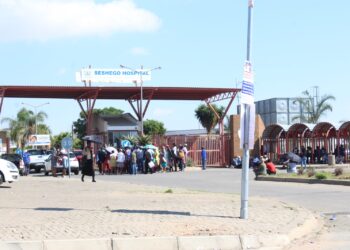By Luvolwethu Ngani
Ford South Africa has announced a restructuring plan that will result in more than 470 employees losing their jobs. The company attributes the retrenchments to reduced production capacity, a move that has dealt another heavy blow to the country’s struggling automotive sector.
According to Solidarity, the trade union representing some of the affected workers, the layoffs will impact two major operations: the Struandale engine plant in Gqeberha, where 83 jobs are set to go, and the Silverton vehicle plant in Pretoria, which will see 391 roles cut.
Union leaders have warned that Ford’s decision could trigger wider retrenchments across the industry. “When an automotive giant like Ford takes such drastic steps, it is a warning to the entire industry,” said Solidarity deputy secretary-general Willie Venter. “We fear that further retrenchments in this industry may be inevitable if conditions do not improve quickly.”
South Africa’s automotive industry employs more than 115,000 people, with over 80,000 in component manufacturing. Already, at least 4,000 jobs have been lost in recent years due to an influx of imports and a lack of local content, leading to the closure of 12 companies.
Ford SA, in its statement, expressed regret over the decision: “We understand the impact this has on our valued employees, and we are committed to supporting those who are affected.”
For the workers, however, the consequences extend far beyond the factory floor. Tebogo Masilo, a production line manager at the Pretoria plant, said the retrenchments are devastating. “This was my source of income. My children and the grandparents who raised me were depending on me. Now I’m out of work, and at my age, it will be hard to find another job,” he said. “I guess I’ll have to start a business, even though I doubt it’s not too late.”
Ford also clarified that the decision was not influenced by the United States’ punitive 25% tariff on South African vehicle exports. Instead, the company cited systemic challenges such as load-shedding and infrastructure backlogs that continue to undermine production.
For now, the future of the affected workers and the wider automotive industry remains uncertain, with industry observers warning that the ripple effects of Ford’s cuts could be felt for years to come.
















